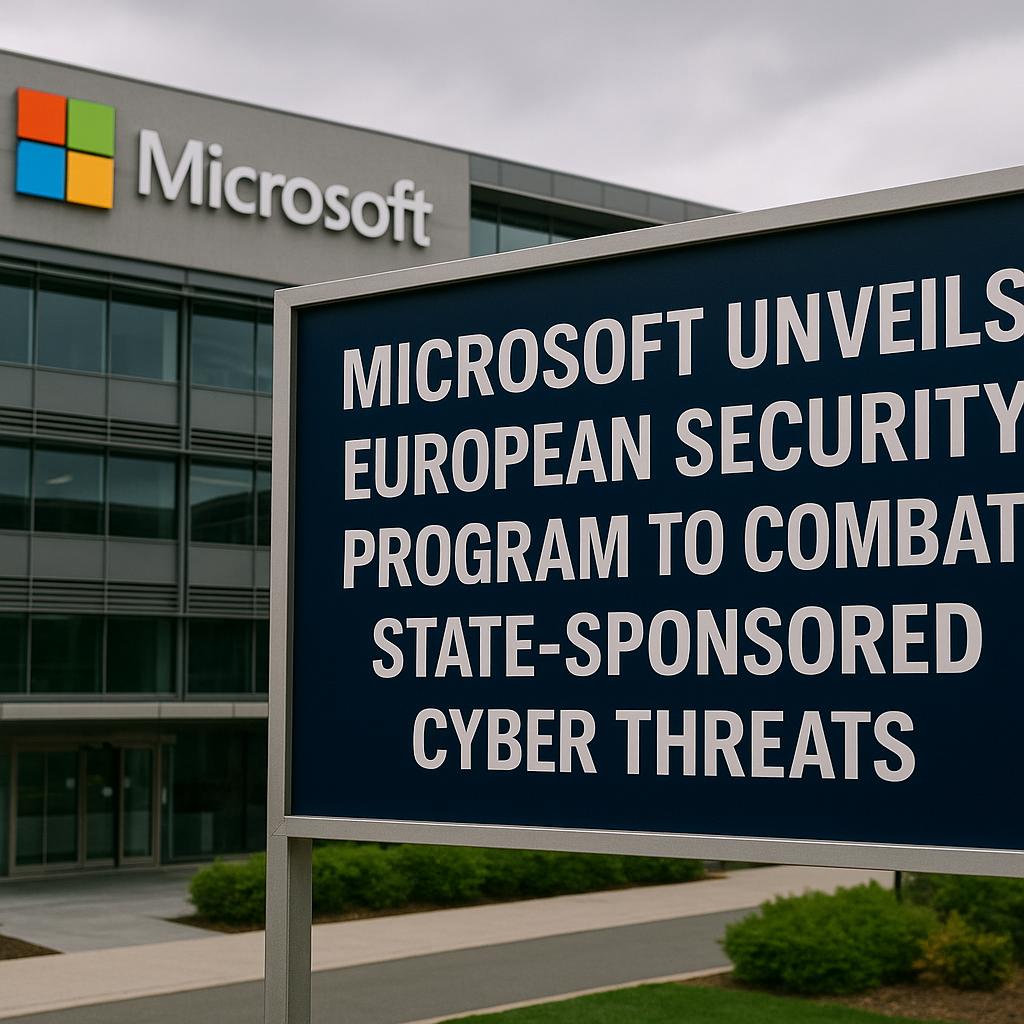Microsoft has launched a comprehensive European Security Program aimed at providing free AI-powered cybersecurity tools to governments across Europe. The initiative, unveiled in Berlin by Vice Chair Brad Smith, targets the increasing threats posed by state-sponsored hackers from Russia, China, Iran, and North Korea.
Under the program, all 27 European Union member states, as well as the UK and accession countries, will receive an array of defensive measures including threat intelligence, automated attack disruption, and investigative support at no cost. Smith emphasized the urgency of the initiative, noting that the sophistication and scope of ransomware groups and state-sponsored actors necessitate a proactive response to cyber threats.
The program builds on Microsoft’s existing Government Security Program and aligns with one of the five European Digital Commitments made in Brussels recently. Its implementation comes amid a documented rise in cyberattacks on European networks, particularly from Russian operators focused on Ukraine and those supporting its defense, as well as systematic campaigns targeted at academic institutions from Chinese threat actors.
Microsoft’s approach consists of three key components designed to bolster continental cyber defenses. These include enhanced threat intelligence sharing, collaboration with Europol’s European Cybercrime Centre, and a Statutory Automated Disruption Program that swiftly identifies and addresses malicious domains across Europe and the U.S. Each government participating in the program will have a direct Microsoft contact to facilitate coordinated responses.
Analysts view this initiative as more than a cybersecurity measure; it places Microsoft strategically ahead of its competitors such as Google Cloud and AWS. The embedding of premium services into the program is seen as a move to solidify Microsoft’s position as a key infrastructure partner amid growing concerns over digital sovereignty and operational complexities within Europe.
Despite the pressing need for enhanced cybersecurity, the program raises questions regarding dependency on non-European providers. Experts have noted that the diverse legal frameworks across EU states complicate the definition and response to cyber threats, highlighting the challenges policymakers face as they strive to implement comprehensive cybersecurity measures. Microsoft aims to make these resources available immediately, offering both immediate and long-term solutions to the evolving threat landscape.

